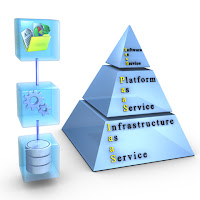_______________________________________________
Revisiting Massachusetts’ Treatment of Prewritten Software Transfers, Computer Industry Services and Products Regulation, 830 CMR 64H.1.3
Factors the Department Will Consider for Distinguishing between a Taxable Transfer of Pre-Written Software or a Non-Taxable Service
To date, the Computer Industry Services and Products Regulation, 830 CMR 64H.1.3, and TIR 05-15 were the primary sources of guidance available to taxpayers to assist them in determining the taxability of their offerings. Recognizing that additional guidance is needed, the Department has included the following criteria in its Working Draft for distinguishing between a taxable transfer of prewritten software or a non-taxable personal or professional service.
Working Draft Directive 13-XX indicates that the following are indicative of a transaction that should be characterized as a taxable transfer of prewritten software:
- A contract or written agreement that provides for a transfer by license, sale, subscription, lease, or other means, of prewritten software for consideration.
- A customer’s ability to access a seller’s prewritten software on its own or the seller’s or a third party server, and into which the customer can enter its own information, manipulate that information, and/or run reports. On this point, the Working Draft parenthetically notes that a mere search queries in a seller’s database are not considered “entering information.”
- The seller provides the customer with the use of software that functions with little or no personal intervention by the seller or seller’s employees other than “help desk” assistance for customers having difficulty using the software.
- The seller refers to itself as an Application Service Provider (ASP) or its product as Software-as-a-Service (SaaS) or in a similar manner, although the seller’s characterization of a product is not ultimately determinative of its treatment for tax purposes.
- The seller provides access to software, including operating system software or application software, even if no software is transferred to the customer. The Working Draft notes that this may be referred to as “cloud computing.”
- The software provides an organizational tool or function that is used by the seller’s customers, e.g., screen sharing.
- Prewritten software is bundled with a non-taxable service and is sold for a single price, but only where the software constitutes the predominant value of the sale.
- The seller provides a “for charge” (not free) application that is downloaded to any device, including but not limited to a Smart-phone, PC or Tablet.
- The seller’s employees provide data processing, create and run reports for customers and provide the resulting reports in any form, which are unique to the customer.
- The seller provides additional, different or restructured information to the customer (e.g., credit card or check verification services, ATM terminal driving services, database access).
- The customer does not interface with the prewritten software either on its own or on the seller’s or third-party servers or enters information that will be further manipulated by the software. On this point, the Working Draft parenthetically notes that search queries by the customer in the seller’s database are not considered entering the customer’s own information or interfacing with the software.
- A seller provides a personal or professional service (e.g., legal, accounting, data management, data storage).
- The transaction is for an optional maintenance contract that does not include software updates or upgrades.
- The seller is providing custom software.
- The seller is providing data storage and back-up.
- The customer runs its own software, which was not obtained from the seller, on the seller’s hardware in a “cloud computing” environment.
- The seller provides customized reports to the customer that are personal and individual to that specific customer and which are not shared with or sold to others.
- Substantial personal or professional services are performed by the seller’s employees and are bundled with the use of software and sold for a single price, and such services constitute the predominant value of the sale.
Additionally, as previously noted, the Working Draft emphasizes that no one factor is determinative as to whether a transaction is one that should be characterized as a taxable transfer of pre-written software or a non-taxable personal or professional service.
Sylvia’s Summation
Additionally, the Department is soliciting taxpayer and practitioner comments through Friday, Friday, February 22, 2013. Interested taxpayers and/or their tax advisors should send their comments to the Massachusetts Rules and Regulations Bureau at RulesandRegs@dor.state.ma.us by this deadline.
Massachusetts Private Letter Rulings Issued Within the Past 2 Years: As noted above, in the past two years, the Massachusetts Department of Revenue has issued several Private Letter Rulings applying the rules in the Computer Industry Services and Products Regulation to specific factual situations. Incidentally, the issues and activities described in these rulings are many of the same “criteria activities” listed in the Working Draft.
These rulings and their issue dates, are as follows: (Note, clicking on any ruling will take you the actual ruling on the DOR’s website. I have also summarized all of the 2012 rulings – if you interested in this summary, please post a comment, or contact me at sylviadion@verizon.net):
- LR 12-13: Massachusetts Sales/Use Tax on Internet-Based Marketing and Customer Communications Solutions, 11/9/12
- LR 12-11: Data Back-up and Restoration, 9/25/12
- LR 12-10: Screen-Sharing Software and the Massachusetts Sales/Use Tax,9/25/12
- LR12-8: Cloud Computing, 7/16/12
- LR 12-6: Sales/Use Tax on Publishing Software, 5/21/12
- LR 12-5: Massachusetts Sales/Use Tax on Business Offerings to Physician Practice Customers, May 7, 2012
- LR12-4: Massachusetts Sales/Use Tax on “Call Tracking Service”, May 7, 2012
- LR 12-1: Teleconferencing Services, January 12, 2012
- LR 11-4: MA Sales/Use Tax: Online Services for Prospective Employees, 4/12/11
- LR 11-2: MA Sales/Use Tax; Sales of On-line Services, 3/4/11
- LR 10-1: Litigation Support Services, 2/22/10






